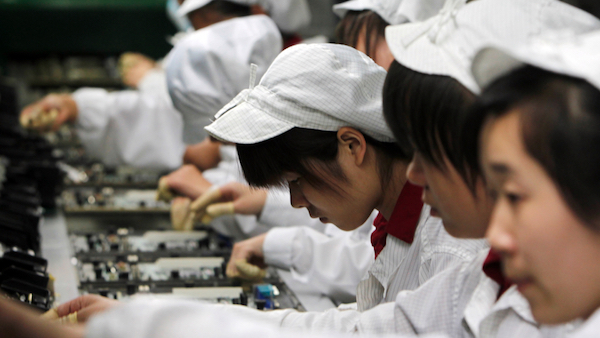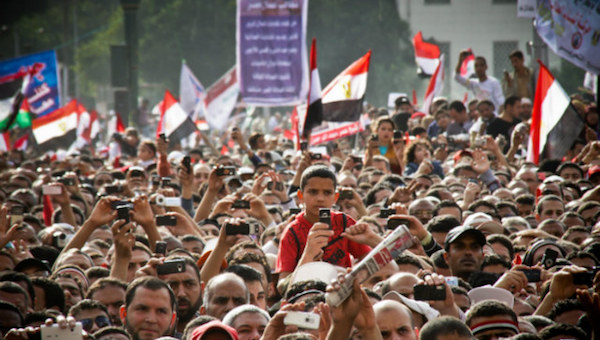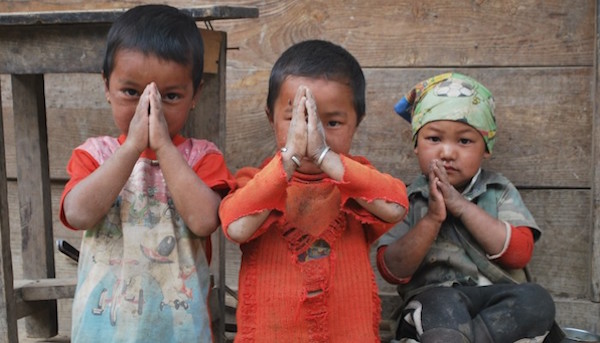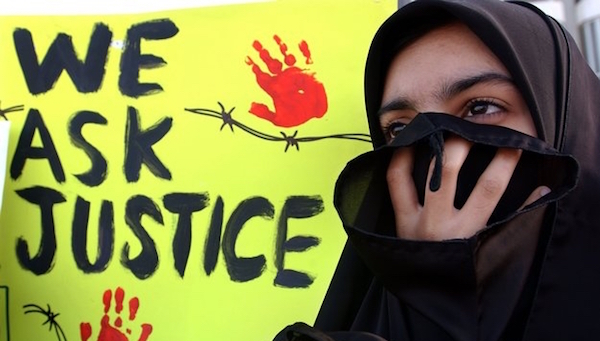Features
To many, journalism might not be considered the driving force behind social change. Yet journalists’ work has throughout history – whether it’s by exposing human rights abuses, holding leaders accountable, or giving people a voice – played a crucial role in bringing about positive change.
Together with three experts, Journalism Is Not A Crime looked at five ways journalism can help change the world for the better.
1. Ending Corruption and Financial Injustice

The whole world was left in shock a few weeks ago, when the so-called Panama papers came to light, and everyone – from Russia to the United States – learned about how the world’s most powerful people have been hiding their huge wealth in offshore accounts and companies. Since then, the massive leak – the 11.5 million documents to be more precise – has dominated the media headlines worldwide.
Although it’s still too early to know how extensive the fallout of the Panama Papers leak will be, the revelations have already demonstrated the key role journalism plays in holding people in power to account. All over the world, protesters have taken to the streets, politicians have resigned, and investigations have been opened.
Exposing corruption, abuses of power and financial wrongdoings are considered the journalist’s most noble tasks. Corruption cases often start with a media headline. Some have had dramatic consequences. In May 2009, the United Kingdom witnessed the beginning of a major political scandal that would arouse widespread anger among Britons. The revelations that British politicians for years had exploited the system of parliamentary allowances to subsidize their lifestyles were first published by the Telegraph newspaper, and since followed up by intense media coverage in the UK. And the fallout was remarkable: A large number of MPs were forced to resign, apologize to the public and repay expenses; several were prosecuted and sentenced to prison.
But the media’s role is not just about the specific cases of abuse, and they are not always as dramatic, says Charlie Becket, director of POLIS, a media think-tank at the London School of Economics. “It’s whether you create a culture where people feel they can be held accountable,” he says. “The campaign that revealed the abuse of MPs expenses has helped keep British politics pretty free of corruption.”
2. Improving Workers’ Rights

In January 2010, a 19-year-old male worker was found dead at a Foxconn factory in China, the biggest supplier to big US technology brands like Apple. In the six months that followed, eight more workers committed suicide.
Although the first few deaths didn’t draw much public attention, the unusual and disturbing figures started to raise questions. But it was only when a young reporter followed up the case, going undercover and working in the factory for 28 days, that the story found its way to the international press.
The reporter’s horrifying account of the working conditions at Foxconn – and the stress that young workers were put under while manufacturing iPhones, iPods and iPads – was published on the front page of the Chinese investigative paper Southern Weekend, and soon Western media stepped up their coverage. According to Anya Schiffrin, editor of the book Global Muckraking: 100 Years of Investigative Reporting from Around the World, the story and subsequent coverage undoubtedly played a crucial role in drawing attention to working conditions at Foxconn, and in China in general, and put pressure on Foxconn to make improvements.
In Schiffrin’s book, the Foxconn story is mentioned as one of many examples of how journalists’ investigations throughout decades have helped improve workers rights all over the world. Often stories have had a direct impact on the law. For instance, when, in 2014, the New York Times exposed the conditions for nail salon workers in Manhattan, the local government was immediately pressured to implement new laws improving workers’ rights and salaries.
Even though the direct effects of the NYT story mainly affected workers at nail salons in New York, changes of this kind can have a much broader impact on people’s rights in general, Schiffrin explains. “When the bar is raised, it can be raised in all sorts of other areas,” she says. “I’m not saying this will be done overnight, but journalism is such an important piece of that change.”
3. Giving Citizens a Voice

On December 17, 2010, a Tunisian street vendor set himself on fire, frustrated over police corruption, rising prices and lack of opportunities in his country. Soon his act of desperation sparked a wave of sympathy throughout the region and inspired others to take to the streets and take action against their autocratic rulers, many of whom had been in post for several years, or even decades.
According to Charlie Beckett, one should remember that the so-called Arab Spring of 2011 happened as part of a wider social, historical and political context. Yet, there’s no doubt that mobile phones, social media and citizen reporting performed an important role because it made it easier for people to push for the change they were hoping for.
“It helped people organize, build solidarity and understand that there was a struggle arising,” Beckett says. “There was also a role played by conventional journalism, such as TV. It was showing people what was happening and therefore inspiring them, and also breaking the taboo, the idea that you can never rise up. So there’s definitely a role for catalyzing protest and allowing a domino effect.”
With the growth of modern technology, citizens’ role in documenting the news has become increasingly important, especially in places where mainstream media are controlled by the authorities, or where professional journalists have limited access. Since the war began in Syria, for instance, citizens have used their mobile phones to send imagery and reports to the outside world.
According to Stuart Allan, a journalism professor at Cardiff University whose research revolves around digital and citizen reporting, the increasing role of citizen journalists is a “positive development.” But, he says, it can’t take the place of professional journalism.
“It’s helping to democratize our media,” Allan explains. “It ensures that we have a variety of different ways of doing journalism in public circulation. It invites people to get involved, take interest and to care. It can enrich the quality of what journalists are doing and give depth and perspective, which is very likely going to resonate very positively with the audience, who will see themselves represented to a greater extent.”
4. Raising Awareness and Pushing for Action

Whether it’s an earthquake in Nepal, a terror attack in Paris, or a humanitarian crisis in the Middle East, the news of a catastrophe will most likely reach the rest of the world within hours. Although media cannot solve the world’s problems on its own, it can contribute to creating awareness and sympathy, helping raise funds and aid, and encourage people to take action for those affected.
“We can see clearly that where there’s more attention paid to a humanitarian crisis or disaster, generally speaking there will be more public support in terms of fundraising and so on,” Beckett explains.
Media attention is not only crucial in terms of fundraising and humanitarian aid, but can inspire people to commit personally to a case. In Canada, thousands of private families have opened their arms to refugees from Syria, partly as a result of Canadian media’s high attention to the plight of Syrian refugees.
Over the past six months, more than 26,000 Syrian refugees have made the trip across the Atlantic to settle in Canada; of them 11,000 have been sponsored by ordinary Canadian citizens who commit to take responsibility, financially and socially, for one or more of the refugees for one year. According to experts, the striking images from Syria and the Mediterranean Sea have helped moved Canadians into action.
5. Promoting Human Rights

In 2002, a team of reporters from Boston revealed through investigations how dozens of local Catholic priests had been abusing children for years. The appalling case, which is retold in the 2015 film Spotlight, has, along with widespread media coverage, led to investigations, trials and convictions in many countries, and put a tremendous pressure on the Vatican to dismiss hundreds of priests and invest more resources in child protection efforts.
The list of human rights abuses taking place all over the world is endless. In Iran, journalists and political opponents face a constant risk of being imprisoned and tortured; in Yemen, children are recruited as frontline armed soldiers; in Tunisia, men are prosecuted for homosexuality. Change doesn’t come easily, and it rarely comes from journalists’ efforts alone. But whatever abuse – whether it’s human trafficking, child labor, discrimination or torture – the effect of media coverage should not be underestimated. When media puts human rights on the public agenda, people start talking about the issues and demanding action.
“Journalism can be incredibly important in exposing and fixing a lot of different outrages,” says Schiffrin. “It reinforces the government agencies that care about a subject. I think most governments are responsive to some degree to public opinion. If you have a regulation that’s supposed to be doing something about human rights, or the country has signed some kind of convention, journalism can remind them they are supposed to comply with it.”
Although it’s almost impossible to measure the impact of journalism, Schiffrin explains, one could turn the question around and consider what crimes and abuses could have happened if journalism didn’t exist. “What’s the counterfactual?” she asks “You don’t know. If there wasn’t any journalism, what would they be doing?”
Read also: Changing the Conversation: Why Journalism Matters